
For those of you that may have missed The Daily Show last night, you missed a brilliant scene of actual journalism. While others claim a ‘no spin zone,’ here is Jon Stewart at his best in maintaining a respectful tenor, but never allowing former Under Secretary of Defense and now Professor at Georgetown University, Douglas Feith, to dodge the important questions. Few are adept as Stewart at using Feith’s logic against him.
Sad is the state of democracy in America that we look to the “fake news” hosted by comedians for real interviews and questions, while on the “real news” we only get tabloid droll, consisting of smears about supposed terrorist endorsements, worries about former pastors, and who knows what else is of little to no importance.
If you are interested in the lead up to the war in Iraq (and I hope every American is), then these 15 minutes are well-worth the watch. Would love to hear your comments and reaction.
Part 2 of the interview
Another university endowment has been gifted. This time it goes to the School of Advanced International Studies of Johns Hopkins (SAIS) for “India studies,” and comes from Mohinder P. Sambhi, a Ludhiana-born hypertension specialist.
A prominent Indian-American has donated $2 million to establish an endowment for India studies at Johns Hopkins University’s School of Advanced International Studies. The endowment is the first of its kind in Washington…The fund supports student fellowships, a professional lecturer and eventually a professorship to be held by a scholar or practitioner whose eminence and promise in the field deepens Indian scholarship and instruction at SAIS, the institution says.
SAIS is reknown for its programs in international affairs. In the past, it was also reknown for its neo-conservative tilt, home to faculty members such as Francis Fukuyama who was an important figure in the rise of neo-conservatism and a key contributor to the Reagan doctrine of containment. As the Iraq debacle has unfolded in recent years, Fukuyama has backed away from the neo-conservative agenda.
So it seems the Democratic nominee may finally be set. After what a most astute commentator has called “The LONG FLAT SEEMINGLY ENDLESS BATAAN DEATH MARCH to THE WHITE HOUSE,” the end is finally within sight. It seems that Obama has numerically emerged the victor.
Members of this blog have been very active in campaigning for Senator Obama. I am sure they are pleased.
However, within our community, I believe a false dichotomy has often been presented. Some have stated that while many young Sikhs have been far more engaged with the Obama campaign, older members of our community have fundraised for the Clinton campaign. I believe that this age-difference distinction has always been grossly exaggerated.
Using Occam’s razor, a simpler thesis may suffice. While Hillary Clinton was the favorite at the beginning of the campaign, as the winds changed others were slower to jump on Obama’s bandwagon. I am sure we will see many ‘older’ Sikhs fundraising for Obama as we get nearer to the fall.
In fact, here is one voice that defies such characterization. Here is one Punjabi poet’s dedication to Obama (yes Phulkari, you get subtitles too!).
On this Mother’s Day let’s celebrate by listening to Punjabi music’s tributes to our mothers!
To start off, I would like to share a BEAUTIFUL song by Gurdas Mann, “Mawaa Thandiyaa Chawaa”.
There is also the song, “Maa”, sung by Malkit Singh with the beautiful line “maa daa rishtaa sab toau sachaa … maa hai rab da roop” [a mother’s relationship is the most truthful …. A mother is the beauty of God].
Please share your favorite “Maa” song and I hope you can dedicate it to her too!
The Sikh Coalition was informed of Kamal Nath’s visit to speak at Northwestern‘s Kellogg School of Management tomorrow. There is a petition circulating for those of us deeply concerned about a Human Rights violator being hosted by Northwestern University. To have your voice heard, please click here and fill out the petition.
Thanks Anandica — just to add what are his offenses:
Kamal Nath, a Congress official close to the Gandhi family, helped lead a mob towards Gurdwara Rakab Ganj during the Delhi 1984 anti-Sikh pograms. He was present as a number of Sikhs were torched alive and was outside as the crowd pelted the Gurdwara, attempted to burn it, and massacre those that sought refuge inside. He has denied all allegations and numerous tribunals, although failing to convict him (or ANYONE for that matter) have all had serious questions about his alibi. [Jodha]
Those in Punjab who don’t have access to hospitals and licensed doctors often seek cures from quacks posing as medicine men and the plethora of cure-all medication sold by hawkers at bus stops. In central California too, illegal immigrants turn to traditional healers.
Immigrants interviewed amid the vineyards of Madera and the cantaloupe fields of Mendota said they had faced numerous obstacles to pursuing conventional medical care. Above all, they said, was cost, but other factors included fear of deportation, long waits for treatment in medically underserved areas, and barriers of culture and language.
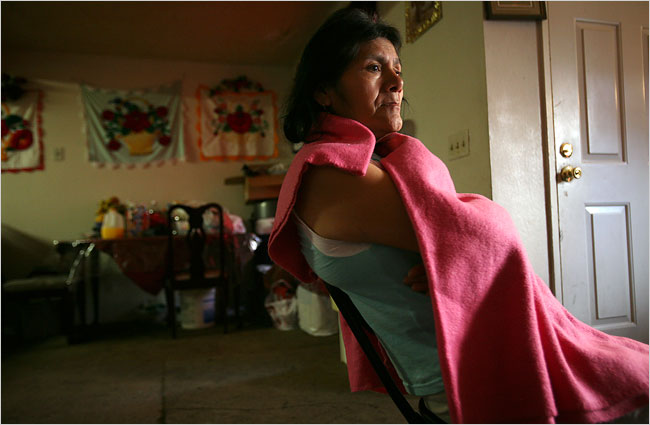 This article focuses on the Hispanic immigrant community, but the issue it raises applies to Punjabi Sikh legal and illegal immigrants as well. I would venture that some Punjabi immigrants (legal or illegal), because of the high cost of American health care, would prefer the care of a member of the community with questionable credentials to an emergency room of seemingly hostile nurses and doctors. We’ve mentioned many homeopathic medicines that many people find to be great for preventative and healing purposes. But there is a risk to traditional medicines too- that patients who may have serious illnesses will postpone diagnosis, aggravating an illness that could have been more easily addressed if diagnosed earlier.
This article focuses on the Hispanic immigrant community, but the issue it raises applies to Punjabi Sikh legal and illegal immigrants as well. I would venture that some Punjabi immigrants (legal or illegal), because of the high cost of American health care, would prefer the care of a member of the community with questionable credentials to an emergency room of seemingly hostile nurses and doctors. We’ve mentioned many homeopathic medicines that many people find to be great for preventative and healing purposes. But there is a risk to traditional medicines too- that patients who may have serious illnesses will postpone diagnosis, aggravating an illness that could have been more easily addressed if diagnosed earlier.
The situation may sound familiar to many Sikhs. Government forces practiced storming a religious center by creating a mock model. No, I am not talking about the Government of India in 1984 *[see bottom], but rather the American Government in 2008.
Last week, a number of US government agencies ran a drill to practice their emergency preparation. A newspaper reported:
For the purpose of Thursday night’s emergency exercise drill, the Continuing Recovery Center in Irving had become Irving Mosque, the home-base for a radical, heavily armed group with suspected terrorist ties.
There were explosions outside and inside the building. Illinois Law Enforcement Alarm System (ILEAS) special forces stormed the “mosque” from an armored car. [link]
Members of the Muslim community, I believe, rightfully protested the implications:
The use of a fake ‘mosque’ in this type of drill sends the wrong message to law enforcement officials who may now view mainstream institutions, such as Islamic houses of worship, as potential security threats,” said Ahmed Rehab, executive director of CAIR’s Chicago chapter (CAIR-Chicago). “Officials must be trained in dealing with hostage-taking and responding to chemical, biological or bomb attacks. We are only questioning the wisdom of linking the American Muslim community and its institutions to such incidents.” [link]
Those that join the teaching profession tend to be do-gooders. I recently came upon a Houston (Canada, not Texas!) teacher, Carroll Airey.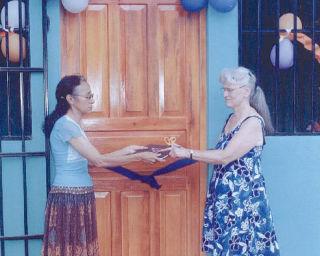
Carroll Airey is making a difference.
Airey, a retired Twain Sullivan teacher-librarian, has been fundraising for a town in Nicaragua — Santa Rosa del Penon — for almost 10 years.
Airey’s reach into Central American began in 1998 after Hurricane Mitch tore through the country. Airey set up the Children Helping Children club at Twain Sullivan and the group managed to raise $10,000 that helped out two communities: Santa Rosa del Penon and El Bosque. [link]
The article describes some of Carroll’s exceptional work. Through the sales of Fair Trade organic coffee, tea, and chocolate she has helped support a maternity clinic, nutrition program, garden project, and a sewing school. Recently, while in Nicaragua, she has begun efforts to house a library and a small computer center. Googling her on the internet, I found that she has also initiated a global arts exchange program between children in Houston (Canada, not Texas!) and Santa Rosa del Penon (Nicaragua).
Other bloggers have discussed their convictions regarding manly men, but Dalip Singh Rana from Himachal Pradesh may have taken this concept to a whole new level.

At a mere 7 feet, 3 inches and 420 pounds, Dalip Singh is blazing a new trail into World Wrestling Entertainment.
He is the first Indian to be signed up by WWE, and enjoys top billing in the famous American showbiz circus alongside fighters such as Hulk Hogan and The Rock.
The WWE website says of Rana:
This enormous monster has walked the jungles of India unafraid of pythons and wrestled White Bengal tigers. Legend states that the Punjabi Warrior has “stared into the abyss and the earth trembled at his gaze.
A Non-Sikh friend of mine recently asked me about the naming conventions in the Sikh religion. She was wondering why “deep” and “jit” were so common at the end of Sikh names, and did this take away from a person’s individuality. (Like Joe Smith?) I thought it was an interesting point, but personally I don’t feel my name defines me. My uniqueness comes from my personality, the pursuit of my own path and growing through my experiences. Although I do feel I have grown into my name, and it does hold significance for who I am becoming as a human being. What is amazing about our names is the depth of their meanings, the interchangability of parts of the names to create a new meaning, and that they are epicene names. When I do tell Non-Sikhs what my name means, the response is always “Wow, that is so cool!”.
A new pattern emerging these days is the shortening of the name and/or being creative with the way it is spelt. It is inevitable changes will happen as we assimilate to the western world we live in, and with the generational changes that are happening. People used to put faith with the Guru Granth Sahib and the first letter that was chosen, at random, became the starting point for naming a new baby. Is this a tradition that is being utilized today?
We have such an immense choice of names, and I have yet to find a culture that holds deeper meanings for their names, however common they may be, than ours.
I pose this question to you all: What does your name mean to you?
Our phones have become an extension of our bodies. Walk around outside and you’ll see the dawn of the blue-tooth era with the masses walking and having conversations with everybody, but the people that are actually physically near them. Seeking to capitalize on the trend, phone companies seem to sell us everything but the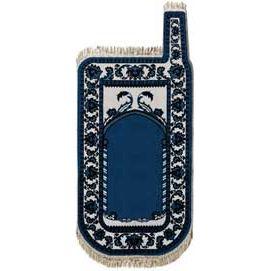 actual plan. You can buy wallpapers, ringtones, and other superfluous things to ‘pimp your phone.’
actual plan. You can buy wallpapers, ringtones, and other superfluous things to ‘pimp your phone.’
In the ongoing process of religious commoditization, many faith-based entrepreneurs are peddling faith-based phones. Mike Elgan, a writer for Computerworld, has recently asked, “What religion has the best mobile phone?”
Which of the world’s greatest religions, Christianity, Islam, Hinduism, Buddhism, Sikhism and Judaism (listed in order of size), has the world’s greatest mobile phone?
While researching this article, I was unable to find a single Christian, Hindu or Sikh mobile phone. I’m not saying they’re not out there somewhere, just that I’m “agnostic” on the point. I just don’t know.
A few months ago, my fellow langa(w)riter asked, “Who Speaks for Sikh-Americans?” While we are still waiting for the exciting conclusion (or atleast a second part), recent news over the weekend, makes me also ponder this question.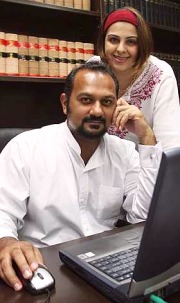
The news came from Pakistan and Malaysia.
In Pakistan, it seems a section of the Sikh community there has demanded
”The Sikhs’ problems could be solved if the community is given representation in the government or if a Sikh is appointed an adviser to the prime minister,” said Swaran Singh, candidate for the post of president of the Pakistan Sikh Gurdwara Prabandhak Committee.
He suggested that an adviser to the prime minister should be appointed to attract Sikhs from other countries to invest in Pakistan. Christians and Hindus have representations in the government, but Sikhs have yet to reach the national or provincial assemblies, he said. [link]
In Malaysia, the news rang out:
Malaysian ethnic Punjabi Karpal Singh and son Gobind Singh Deo have created history by becoming the first-ever father-son duo to be elected members of a Parliament in the world. [link]
We know the Britney Spears and Miley Rays of Hollywood tremendously influence the lives of our pre-teen and adolescent girls. The voices we keep hearing on television are those of white, multi-generational American, and suburban teens.

Their experiences are being boxed and represented as THE experience of adolescent girls in America. Rarely on television does the media interview pre-teen and teen girls of color from immigrant backgrounds living in urban/rural areas about their perceptions of life and the future – unless the story is on teen pathology from pregnancy to drugs and violence.
Therefore, I was pleased to see the trailer of a documentary, “Going on 13”, that is about pre-teen girls from minority, immigrant, and urban backgrounds discussing how they negotiate the whirlwind of changes and choices, from body image to relationships, just as girls in the suburbs.

The only distinction is how their social, economic, and cultural contexts add a different layer to the experience that is not a form of “mal-adaptation”, but another way of living. The film-makers’ goal was “… to show the reality of preteen girls and urban minorities, which isn’t often portrayed in the mainstream media” and “… wasn’t just focused on the pathology of urban youth”.
While we’ve heard a recurrent Canadian voice that claims that Sikhi is incompatible with being openly LGBTIQ, a new Sikh-specific support group has grown in Vancouver. There have certainly been South Asian-specific support organizations in the diaspora for the last decade or so (within the U.S., Trikone in SF, and SALGA on the east coast). However, these organizations have been challenged to create space for those at the intersections of regional and religious identity — i.e., between a Punjabi/South Asian ethnic identity and a Sikh religious identity. Similar organizations have recently sprouted up in the queer (South Asian) Muslim community, but this is the first formal Sikh support group I’ve heard about.
This made me reflect on other issues of integration and advocacy across communities. I think it’s vitally important to have community organizations, in part because they play a large role in creating sustainable institutions. However, I also resent that “mainstream” organizations sometimes use these institutions as an excuse for failing to provide comprehensive services for the true diversity within a larger, umbrella community. I also worry that it’s only possible to get this level of specificity in areas where there is a large enough community to achieve a critical mass.
What do you think, readers? Would a Sher in your area provide a necessary safe space? Would it be feasible?
Previous coverage: Towards a Queer ethos, A “Sensible” Religious Response to LGBTIQ Sikhs
While I had contemplated covering some serious news, scouring through Google News, an article caught my attention. Today happens to be the 33rd birthday of David Beckham. Not that I really care, but the article 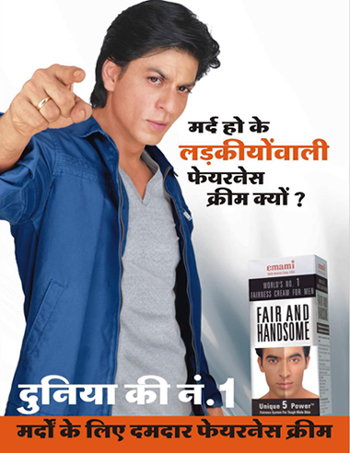 bemoans how David lost his star status over the past few years:
bemoans how David lost his star status over the past few years:
From 2003 to 2004, Google ranked his as the most popular sportsman in the world, by virtue of the number of times his name had been logged in. But in 2008, David Beckham’s popularity has been confined to reports of his luncheons with his wife, Victoria, and her famous girlfriends — Eva Langoria and Katie Holmes. [link]
The article theorizes that Beckham had gotten too large for life. I had my own theory….since Beckham had always been labeled as the “poster boy” for metrosexuals, maybe we finally got sick of him. Maybe, after a decade of this god-awful trend, we have returned to normalcy and are in the post-metrosexual age. Eager to test my hypothesis I devised the full-proof experiment — I would look up the word “metrosexual” in Google News.
As far as my hypothesis goes, I WAS WRONG!
I came across this video, linked from PP about the elections for the mayor of London. For more election coverage, visit Pickled Politics. Check out this video on ‘how to campaign’ in Southall. The desi van is just classic. It is almost exactly as they campaign in Punjab. I wonder if they distribute free alcohol and drugs like Badal’s Akali Dal and the Congress.

I thought I had seen something similar in a movie before. Here it is….forward to 3:10

Most people who lived through Partition are understandably hesitant to talk about it. A decade long Ford Foundation study says that one fourth of those interviewed about Partition so far have never even recounted their stories to their children. So I was pleased to find this diary type piece about Delhi in the aftermath of Partition. It’s personal.
When I was a little girl I was living in Sita Ram Bazaar in Gali Kulub Din which was at a twilight
zone between Turkman Gate (an all Muslim area) and the temple of Chaurasi Ganta, the 84 bells, an all Hindu area. Both the communities met midway and had lived together happily for many centuries till the partition occurred in 1947. We had moved there in 1948, when I was four months old; however, my memories of the place date back to the time when I was four and my younger brother Ravi was about to be born in the year 1952. Several Muslim properties, belonging to the families migrated to Pakistan, were lying vacant in our street, the Gali Qutub Din. However, a sizable Muslim population had also stayed back.
It also invokes visuals. 2 things caught my attention. First was the mention of abandoned homes:
Poor KP Gill. The ‘butcher of Punjab’ lost his cushy government position, after having been President of the Indian Hockey Federation for fifteen years.
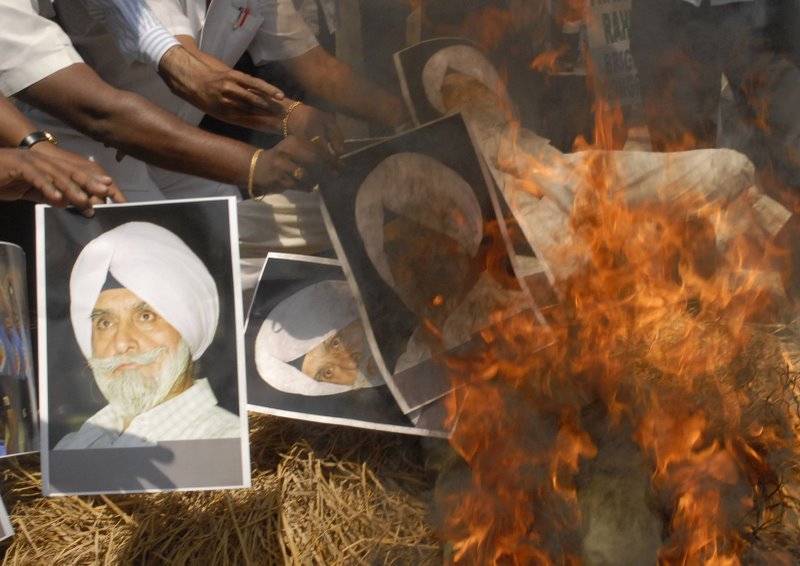 Bribery, corruption, and mediocrity – this is Gill’s legacy as President of the Indian Hockey Federation. After failing to even qualify for the Beijing Olympics in field hockey, for the first time since field hockey’s introduction in 1928, and then finding himself in the midst of an expose where his handpicked Secretary-General was videotaped(!) accepting a bribe to select a player on the national team, the calls for Gill’s dismissal had become too loud. Others had called for his resignation, but the ever prideful Gill has a track record of being unceremoniously dismissed.
Bribery, corruption, and mediocrity – this is Gill’s legacy as President of the Indian Hockey Federation. After failing to even qualify for the Beijing Olympics in field hockey, for the first time since field hockey’s introduction in 1928, and then finding himself in the midst of an expose where his handpicked Secretary-General was videotaped(!) accepting a bribe to select a player on the national team, the calls for Gill’s dismissal had become too loud. Others had called for his resignation, but the ever prideful Gill has a track record of being unceremoniously dismissed.
Crying as usual, Gill responded:
“Am I to resign based on a concocted sting operation, or simply because some players or a section of the media wants me to? There is a rule of law, a democracy in the country, I am not going to resign when I haven’t done anything wrong,” he said. [link]
Really, what is he going on about? Was his cushy bureaucratic position an ‘elected’ seat? What does democracy have to do with anything in this context? Rule of law? The fact that Gill should ever utter the phrase ‘rule of law’ or appeal to it is beyond absurd. Unfortunately the tragedy upon those families he destroyed prevents me from laughing at the irony. Where was the rule of law for the tens of thousands he made ‘disappear’?
I just saw this video and thought I’d share it with you all. Look out for the surprise!
In keeping with TLH’s agricultural theme, the BBC reported today on the environmental health fallout of the Green Revolution in Punjab (I). The Green Revolution introduced industrial mono-culture farming to small farms. The result was a short and sharp growth in grain production. However, over time this has also resulted in declining harvests. Why? Because many of the “best practices” from industrial farming are also unsustainable. Without crop rotation, most stock grains (corn, soy, wheat, rice, and cotton) leach nutrients from the soil. The industrial solution to this is an over-reliance on both manufactured fertilizer (to re-fix nitrogen) and pesticides (since mono-crops are notoriously more vulnerable to weather or pest devastation). Now declining crops are paired with another negative outgrowth from devastatingly unnatural farming practice: increasing rates of cancer, and possibly pesticide poisoning, among Punjabi farmers.
In agricultural economics, public health, and agrarian studies, the links between pesticide use and health have been clearly documented in the local and international context (1, 2, 3, 4). We know, now, that many of these methods do not post the high crop levels that seemed never-ending in the past. And in the context of — arguably trade-driven — food shortages world-wide, this article raises questions about the disproportionate burden of agrarian “success.” Is it truly successful if it’s unsustainable? Is it “success” if grower booms later severely limit the quality or duration of life? How about the permanent ecological damage? The loss of biodiversity? Punjab has fed the subcontinent for decades, but what will happen if growth continues to fail while the population surges?
Previous coverage: “Nanak Kheti”… and Natural Farming, The Rights of Punjabi Farmworkers, Asian Americans and Rural Development, Farmer suicides continue…


 zone between Turkman Gate (an all Muslim area) and the temple of Chaurasi Ganta, the 84 bells, an all Hindu area. Both the communities met midway and had lived together happily for many centuries till the partition occurred in 1947. We had moved there in 1948, when I was four months old; however, my memories of the place date back to the time when I was four and my younger brother Ravi was about to be born in the year 1952. Several Muslim properties, belonging to the families migrated to Pakistan, were lying vacant in our street, the Gali Qutub Din. However, a sizable Muslim population had also stayed back.
zone between Turkman Gate (an all Muslim area) and the temple of Chaurasi Ganta, the 84 bells, an all Hindu area. Both the communities met midway and had lived together happily for many centuries till the partition occurred in 1947. We had moved there in 1948, when I was four months old; however, my memories of the place date back to the time when I was four and my younger brother Ravi was about to be born in the year 1952. Several Muslim properties, belonging to the families migrated to Pakistan, were lying vacant in our street, the Gali Qutub Din. However, a sizable Muslim population had also stayed back.